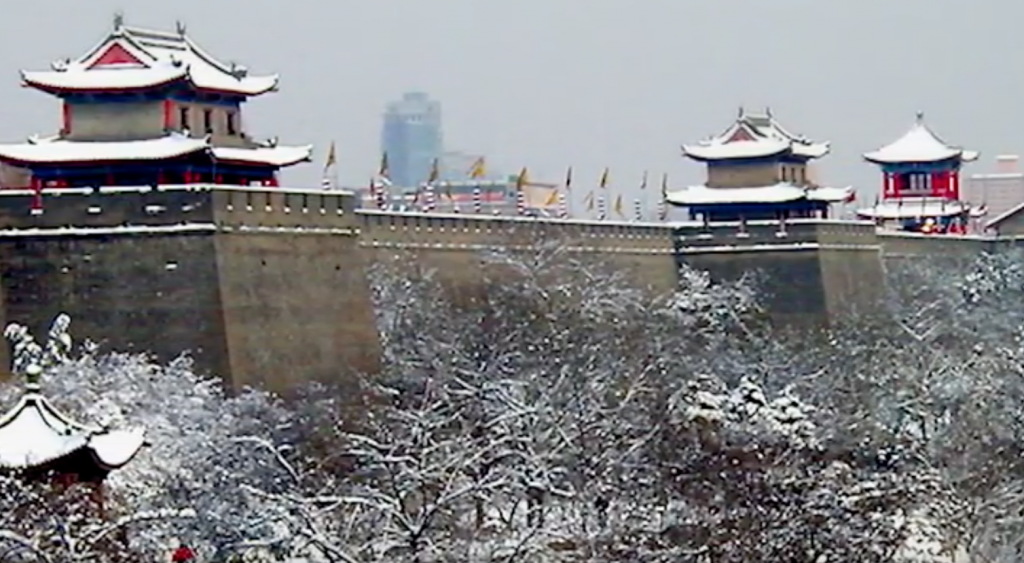
Amid one of the largest land, and in this case also sea grabs, since Nazi Germany carved up Europe during World War II, Beijing is still trying to play the role of peacemaker in the Asia-Pacific region. However, it’s the most disingenuous assertion from a major world power in decades.
First, some background. In the last decade China has been not only claiming more islands, reefs and islets in the disputed South China Sea, but actually stealing them from rival South China Sea claimants. In 2012, China seized Scarborough Shoal from the Philippines after a several-week stand-off.
Scarborough Shoal is clearly within the Philippines’ UN-mandated 200 nautical mile exclusive economic zone (EEZ), but that doesn’t matter to China. The country’s infamous so-called nine-dash line, which lays claim to around 90% of the South China Sea, trumps international law (in Beijing's view at least). There’s another label for this kind of behavior -- it’s called lawless expansionism.
Since 2018, China has also pressed Vietnam on the other side of the South China Sea, twice stopping state-run PetroVietnam and its Spanish partner Repsol from pursuing natural gas development in Vietnam’s EEZ. China’s incursion into Vietnamese waters and its pressure--both militarily and economically--over Hanoi’s right to develop its own offshore natural gas resources, is causing a gas shortage in Vietnam that could begin as early as next year.
Due to Vietnam’s inability to develop its own gas resources, the country is turning to more expensive liquefied natural gas (LNG) imports, in addition to having to build capex-intensive LNG import infrastructure.
These actions, just to name a few that China has gotten away with recently, again clearly indicate that the country is indeed an international lawbreaker that has no regard for its neighbors in the region.
Instead, it still tries to label the U.S. as the source of trouble in the South China Sea and in the region. This allegation comes as the U.S. Navy continues to operate in international waters (yes, the South China Sea) in what Washington calls freedom of navigation voyages.
Now, Beijing is up to its old tricks again. In an op-ed this weekend, the Beijing-based Global Times, which often expresses the views of the Chinese Communist Party (CCP), marked the kickoff of the 35th annual Association of Southeast Asian Nations (ASEAN) summit, which was joined by China and more than a dozen other countries.
The op-ed starts by taking aim at Washington. “The meetings will focus on economic cooperation… [and] can make decisive progress…,” it states. “The US has only sent a low-profile delegation and hoped that the meetings could discuss more about South China Sea issues, which makes Washington not the center of the agenda,” it adds.
“Washington's economic engagement with the East Asian region is declining, but the US has been playing an ever-active role in the region's political and military affairs.”
The reality is that China’s buildup of military installations, including offensive weapons, on-land formations in the South China Sea is a tinder box waiting to be ignited. When Chinese President Xi Jinping first took office in 2013, he promised otherwise. Those promises have now been largely forgotten, or rather ignored, by Beijing.
The Global Times piece continues, claiming that, “China has understood and catered to such [economic] interests of ASEAN” members, while the “US is keen only on containing China in the region.”
“Whether the rebalancing the Asia-Pacific strategy during the Obama era or the Indo-Pacific Strategy endorsed by Trump, the U.S. has viewed ASEAN as a lever that it can take on while turning a blind eye to the proposals ASEAN raised to secure its interests.”
The piece then argues that the U.S. in its trade war with China has disregarded its impact on ASEAN member states. This is a “reminder to Southeast Asian people that they are in a disadvantageous position in their interaction with the U.S. and they must safeguard their own interests with a firm and independent stance,” it states.
The logic of this argument is the same CCP rhetoric that continually comes out of Beijing and will for the foreseeable future, unless Xi Jinping is somehow removed from office.
In essence, it is China that has pressured ASEAN members to choose sides between Washington and Beijing and it does so under the threat of economic and even military coercion. It’s easy for China to be the bully since it’s the largest trading partner of most countries in region. To cross China, as can be seen in the case of China’s economic backlash against the Philippines under the Benigno Aquino Administration, and even against fellow communist country Vietnam for trying to develop its own hydrocarbon resources, carries potential penalties created at Beijing’s own pleasure.
Suffice it to say, the CCP sets its own rules, then tries to force others to abide by those rules. This kind of policy is what President Trump has been battling in his more than year-long trade war with China. This is standard operating procedure for a CCP-ruled China, which Steve Bannon recently labeled as a “thug regime.” This thug regime has set the Asia-Pacific region on a collision course from which there may be no turning back.
Subscribe to our evening newsletter to stay informed during these challenging times!!